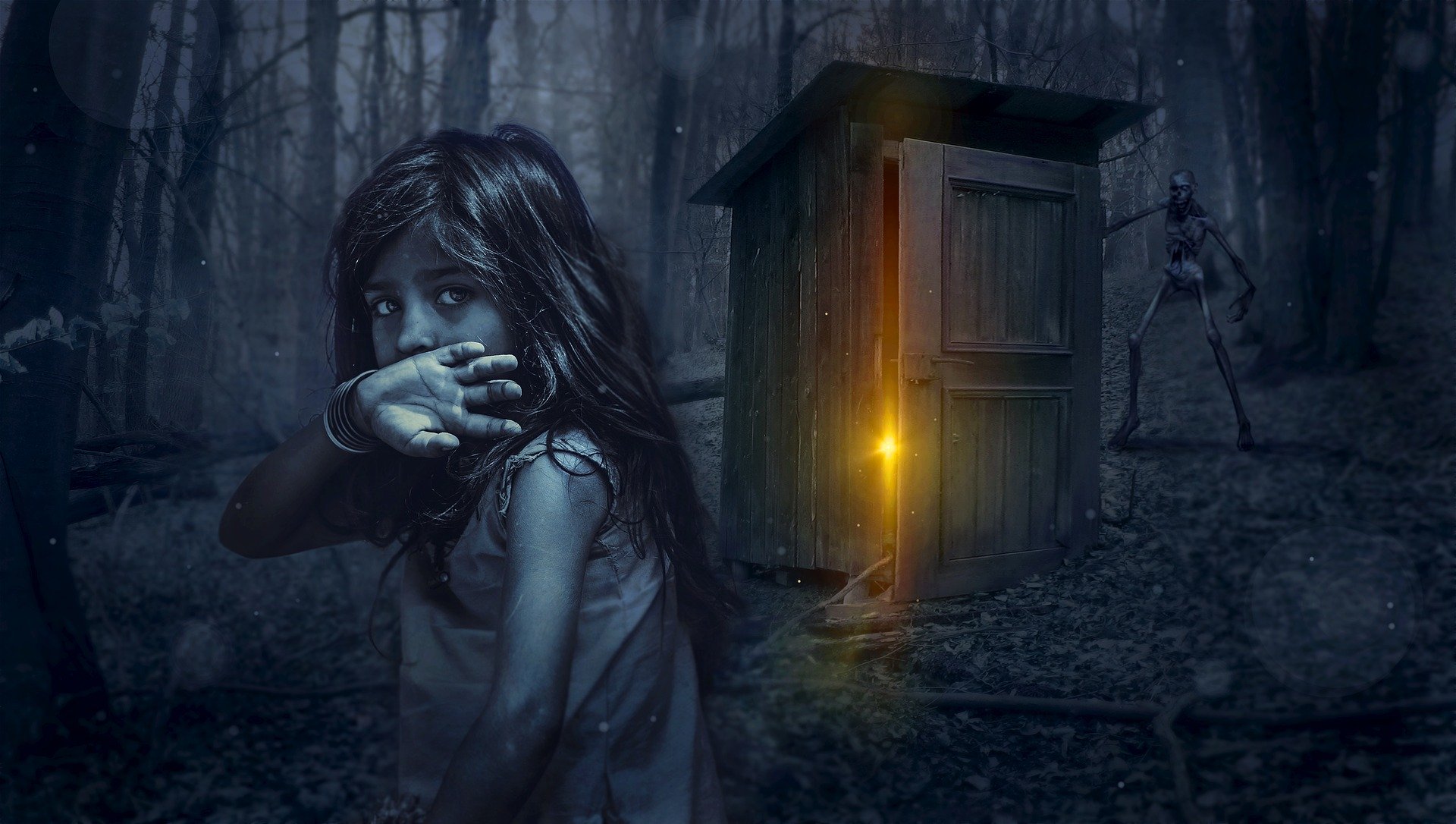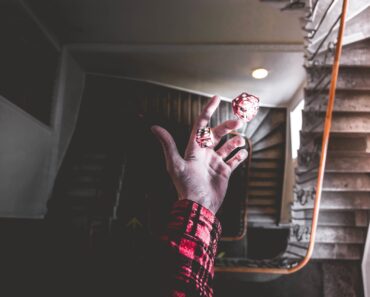--Advertisement--
--Advertisement--
 Given that we spend around six years of our lives in a dream state. It's no wonder people want to understand why we do it.
There are theories, but there's no clear consensus on why we do it? No one really knows for sure, or do they?
Dreams are strange to say the least and for many of us they hold great significance. So much that we like to share them with others at length, if we can even remember them. And try to interpret their secret and hidden meanings. So do they actually hold any real meaning?
Before we get to some of the bigger questions? Let's just look at what goes on inside the brain as our night time adventurers take their course.
Given that we spend around six years of our lives in a dream state. It's no wonder people want to understand why we do it.
There are theories, but there's no clear consensus on why we do it? No one really knows for sure, or do they?
Dreams are strange to say the least and for many of us they hold great significance. So much that we like to share them with others at length, if we can even remember them. And try to interpret their secret and hidden meanings. So do they actually hold any real meaning?
Before we get to some of the bigger questions? Let's just look at what goes on inside the brain as our night time adventurers take their course.
Sleep cycle
While sleeping, we go through different cycles of the five stages of sleep; these are divided into REM sleep and non-REM sleep. REM simply means the rapid eye movement. The first four stages are non-REM sleep; these are restorative in for the most part dreamless. As we move through these initial stages of our brain activity slows. But about 90 minutes after we finally fall asleep, we hit stage five; REM sleep. This is when the dreaming really gets going.Sleep paralysis
When we're in this stage, the body is for all intents and purposes paralyzed, your heart rate goes up, your blood pressure rises and brain activity returns to near waking levels. The paralysis in REM sleep is caused by the release of the glycine and amino acid from brain stem onto your brains motor neurons. It's suggested that this paralysis is nature's way of preventing us from acting on our dreams. And that's probably for the best. The limbic system is a pretty primitive part of the brain that deals with emotions, and it's very active during REM sleep. It's made up of the amygdale which is mostly associated with fear, the hippocampus which is heavily involved in the formation of long-term memory in the cingulate gyrus, which is involved in our physical reactions to situations. Break down the roles of these bizarre brain structures and we can start to paint a picture of why our dreams often take the bizarre and scary forms they do. Couple this with the fact that the prefrontal cortex the part of the brain that deals with logic and self-control isn't really active during REM sleep, and things might just start to make sense. But understanding it isn't enough to prevent these nightmares from happening. It can also happen while you're awake. Sleep paralysis is a terrifying concept; like I just mentioned when you fall asleep your brain doesn't completely shut off, in order to prevent you from acting out your dreams while you sleep, the brain releases chemicals that leave you paralyzed. This paralysis is supposed to be lifted as soon as you wake up. But sometimes it doesn't. And that's where you get sleep paralysis. You wake up you're aware of your consciousness. But you can't move. It feels as if there's a massive weight on your body preventing you from actually waking up. Sleep paralysis is often most caused by disrupted REM sleep, so some people may believe they're still dreaming when they're in fact awake, because of this some of your nightmares could leak into the real world. While undergoing sleep paralysis you'll often see things standing in the corners of your room or on the ceiling or even closer. Luckily this usually goes away pretty quickly.Nightmares
 Sleep medicine doctors say bad dreams can cause your body to stress while you're sleeping. They can cause people have sometimes sleep avoiding behavior because they're afraid of the nightmares. But bad dreams aren't caused by the imagination they're actually caused by your memory.
While we sleep our brain processes memories oftentimes emotions are tied to those memories which can emerge during our REM cycle. Patients can fall asleep and dream about something they haven't seen in 10 years, or a figure they saw on a tv show just before they fell asleep.
Doctors say the most dense REM period is right before you wake up, which explains why people often remember a dream?
Dreams are things that are being things that have occurred that you've either been through, or that you've seen maybe on tv or topics that have occurred that kind of take a life of their own as you're dreaming.If patients have reoccurring nightmares, experts may teach them how to have awareness in a dream this allows a patient to recognize it's a bad dream and wake up!
Sleep medicine doctors say bad dreams can cause your body to stress while you're sleeping. They can cause people have sometimes sleep avoiding behavior because they're afraid of the nightmares. But bad dreams aren't caused by the imagination they're actually caused by your memory.
While we sleep our brain processes memories oftentimes emotions are tied to those memories which can emerge during our REM cycle. Patients can fall asleep and dream about something they haven't seen in 10 years, or a figure they saw on a tv show just before they fell asleep.
Doctors say the most dense REM period is right before you wake up, which explains why people often remember a dream?
Dreams are things that are being things that have occurred that you've either been through, or that you've seen maybe on tv or topics that have occurred that kind of take a life of their own as you're dreaming.If patients have reoccurring nightmares, experts may teach them how to have awareness in a dream this allows a patient to recognize it's a bad dream and wake up!
Is it just biology? Is there no secret window into our psyche?
Everyone at one time or another has wondered what their dreams mean. Some believe that dreams have no meaning and serve no function. Others believe that they're one of the most important things that human biology has allowed to happen. There's in fact many theories of why we dream and what purpose is serves? We can't really go any further without mentioning Freud whose theories of dreams are probably the most well known around the world. It focuses on the content of the dreams themselves as an explanation of the function of dreaming.Dreams represented a window into the unconscious mind
German psychiatrist Sigmund Freud theorized that dreams represented a window into the unconscious mind. A reservoir of feelings, thoughts, urges and memories that are beyond our conscious awareness. The bulk of the iceberg submerged deep underwater. Most of the contents of the unconscious mind are supposedly unacceptable or unpleasant. Representing feelings of pain, anxiety or conflict, when we're sleeping the forces that keep these feelings in check are weakened. Allowing us to live out our desires and even fears through our dreams, Freud strongly believe that by exploring dreams, people could increase self awareness and an insight into their unconscious self that would then help them deal with problems in their day-to-day lives. 20th century Swiss psychiatrist Carl Jung also believe that dreams allow us to tap into the unconscious. But argue that it was a collective unconscious that we were able to access through our dreams. According to Jung, this is a theoretical repository of information shared by everyone in which certain symbols and dreams have meanings that are similar for all people regardless of culture or location. This could explain why so many of us share variations on common themes in our dreams; like falling, being chased or our teeth falling out any of these sound familiar. Dream interpretation is the process of assigning meaning to dreams even today. The practice plays an important role in various forms of psychotherapy, which is surprising given that there is only a little evidence so far the show's understanding of interpreting dreams has a positive impact on mental health. This could be because evidence also shows that people tend not to attribute equal importance to all dreams. Motivated reasoning comes into play, people are more likely to view dreams that confirm their waking beliefs and desires as meaningful compared to dreams that contradict them.
--Advertisement--






